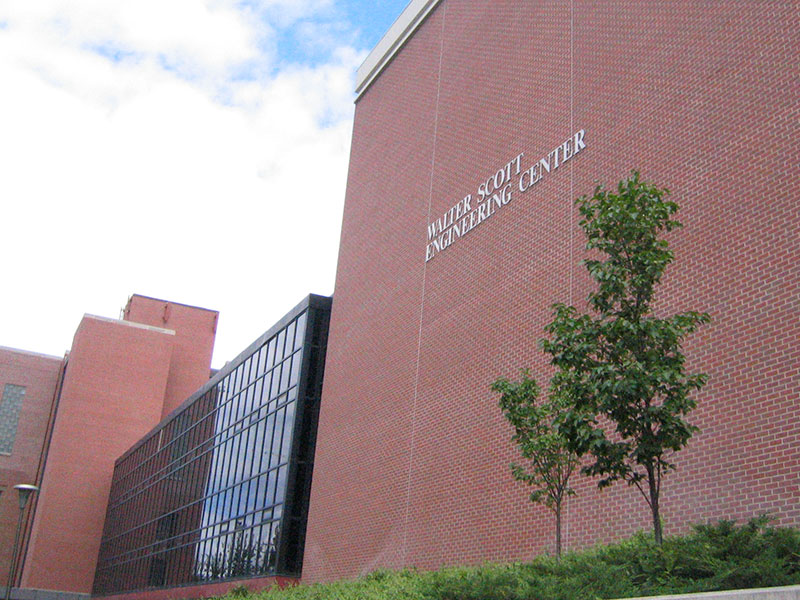
More than $75 million in updates to two College of Engineering buildings on City Campus were approved by the University of Nebraska Board of Regents Aug. 3, providing opportunities to create and improve spaces to benefit students, faculty and research.
Plans for the demolition and rebuilding of The Link and renovations to Scott Engineering Center are necessary because the buildings are antiquated, expensive to maintain and don’t meet the needs of a growing College of Engineering.
“This project is the beginning of a transformational change for our students, faculty and staff and for Nebraska engineering industry," said Lance C. Pérez, dean of the College of Engineering. “The upgraded facilities will enable the college to better accomplish our missions in education, research and outreach, as well as accommodate growth in undergraduate and graduate student enrollment and faculty research."
Over the last 10 years, the college has experienced consistent growth in its student enrollments.
In Fall 2017, the college had 3,117 undergraduates and 650 graduate students.
The three-year project is projected to begin in June 2019 with the demolition and rebuilding of The Link, the 34-year-old structure that connects Scott Engineering Center and Nebraska Hall along 16th street. Construction costs are estimated at $75,465,000, with $70 million in funding from the State of Nebraska and $5.456 million in private donations.
The 25,307 gross square foot (GSF) Link currently houses offices for Civil Engineering and Electrical and Computer Engineering, as well as classrooms and meeting spaces. The Link is inefficient, expensive to maintain and has poor connectivity.
A new and expanded Link will be rebuilt on the same location with approximately 87,000 GSF of space, primarily to house research labs.
The second component of the project – major renovations to Scott Engineering Center – is scheduled to begin in early 2021.
Completed in 1971, the 177,000 GSF four-story structure houses laboratories, research centers, classrooms, graduate student spaces and the machine shop for the College of Engineering. The building is structurally sound, but all the building systems are at end of life and need to be replaced and the interior reconfigured to support modern teaching and research, Pérez said.
The renovations – expected to be completed by the fall of 2022 – will allow Scott Engineering Center to house laboratories for undergraduates and faculty research, department offices and classrooms.